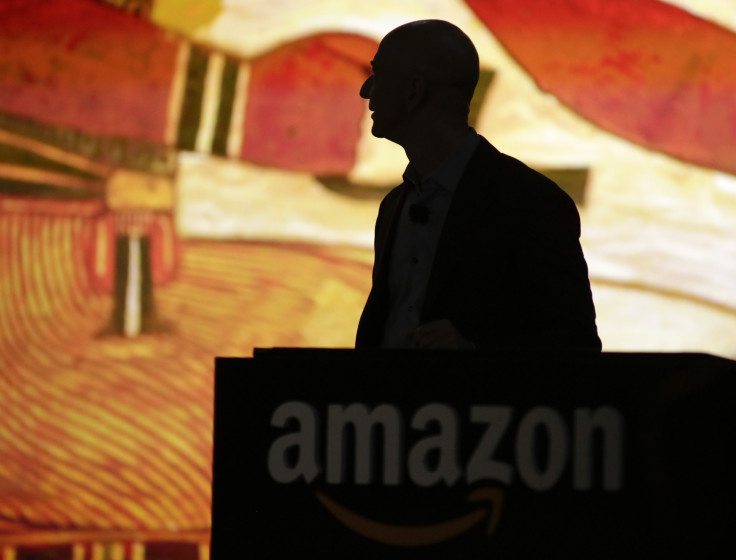Amazon Aims To Block Its Own Shareholders’ Questions About Growth

As Amazon has made national headlines seeking bids from cities for a second headquarters, it has faced intensifying questions about its reliance on taxpayer subsidies and about the implications of its voracious growth. Now, the company run by billionaire Jeff Bezos is moving to try squelch those kind of questions from its own shareholders.
In a letter recently filed with the Securities and Exchange Commission, Amazon asked the agency to bless its move to kill a shareholder resolution that would require executives to inform shareholders of “the risks arising from the public debate over Amazon’s growth and societal impact and how Amazon is managing or mitigating those risks.” If passed, the resolution would require the company to specifically report on “risks related to Amazon’s role in providing physical and digital infrastructure, use of and control over data about customers and competitors, increasing reliance on automation and influence on the quality and diversity of content.”
The sponsor of the resolution cited recent news about the company as justification for its initiative.
“As Amazon has grown, so has public debate over its size, dominant platforms and impacts on key constituencies,” the AFL-CIO wrote in its materials supporting the resolution. “Amazon’s announcement that it plans to create a second headquarters has spurred discussion of its impact on places in which it operates. President Trump blamed Amazon for the loss of retail jobs and erosion of state and local tax bases. Job losses attributable to Amazon in the next five years have been estimated at two million. Amazon’s increasing reliance on robots heightens anxieties about job loss... Given the growing public debate, we believe fuller disclosure.”
The AFL-CIO’s sponsorship of the resolution is the latest in a longer battle between the labor movement and the retail giant. Amazon has fended off efforts to unionize its workforce — and it has been criticized for using aggressive tactics to vilify labor organizing drives. Labor activists have held out hope that the company’s business practices — including having 700 of its workers in Ohio on food stamps — will prompt new unionizing efforts.
In its letter to the SEC, Amazon’s lawyers asked regulators to exclude the resolution from its annual proxy statement, thereby preventing company shareholders from voting on it. The company said that the resolution could be excluded under rules that allow it to reject resolutions dealing with its “ordinary business operations.” The company said the resolution “relates to the Company’s management of its public relations” and “it does not focus upon a significant policy issue.”
The AFL-CIO resolution is not the only initiative the company is trying to prevent a vote on at its upcoming annual shareholder meeting.
Amazon has recently moved to block a proposed resolution requiring the company reduce greenhouse gas emissions from its facilities. The company is also trying to stop an initiative that would require the company to “prepare a report on the use of criminal background checks in hiring and employment decisions” and have the report “evaluate the risk of racial discrimination that may result” from the use of those checks.
© Copyright IBTimes 2024. All rights reserved.






















